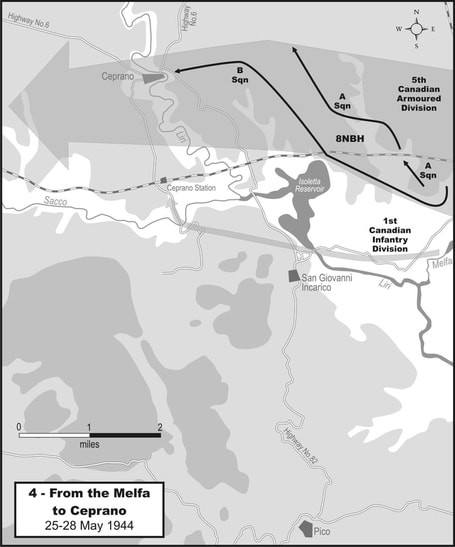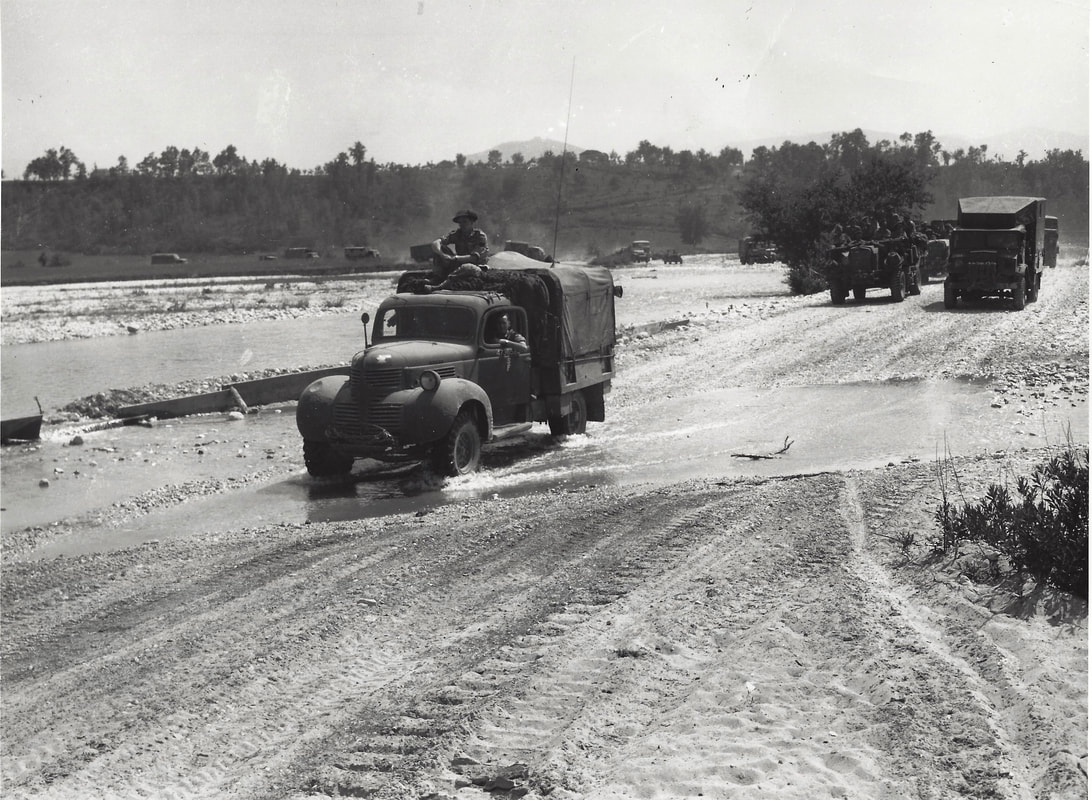
The 5th Armoured Regiment (8th Princess Louise New Brunswick Hussars) would be ordered forward to the Melfa Crossing to help enlarge the beachhead on the other side. At 0800 hours on the 24th, the Regiment began their move. However, due to traffic, the regiment would not be at their muster-point until 1100 hours. German artillery fire began raining down on the tanks as they moved, but the shellfire could not penetrate the Shermans. From there, the regiment would be on the move again at 1500 hours. It would be during this move that the Hussars would see their first action of the Melfa Crossing.
Ultimately, the action on the 24th would be short lived and sporadic. The German withdrawal meant that there were no defined enemy positions, instead the regiment engaged pockets of infantry and the occasional Panther as they stumbled upon them. As the day closed on the 24th, the regiment was redirected back to the Melfa Crossing. Enemy tanks had been sighted by the Canadian infantry, and the Hussars were needed to stave off a possible attack. As darkness fell, the regiment settled down to get what sleep they could, all the while the shellfire rained down on them.

On the other side of the river, the regiment linked up with the Cape Bretons and took over the advance. The beachhead had to be expanded. In setting out to accomplish that task, the Hussars would drive into the teeth of a German ambush. Shortly after 1700 hours, a withering German fire would be hurled at the Hussars. The anti-tank fire came at them with unparalleled ferocity. The volume of fire was such that the gunners were practically blind. There was no where to go but forward, so the Hussars charged blindly ahead their guns firing at random.
In desperation, the gunners keep firing, wherever it was suspected that a German gun might lie, a shell was fired off. Three tanks had been destroyed by the Germans, some going up in flames. Another, that belonging to Major Lane, was targeted for destruction. The Germans managed to knock it out of commission, in the process seriously wounding the Major and his crew. The Hussars kept pressing on, as one tank was knocked out, another would come to fill its place. In this manner, the regiment made it nearer to the German positions.
With the threat posed by the closing Shermans, the Germans began their withdrawal. By this time, the other squadrons of the regiment had made it up from the Melfa Crossing. The Hussars had eliminated several 75mm guns and a self-propelled anti-tank gun. This brief conflict lasted only a quarter of an hour. With the Germans driven back in the immediate area, the day’s action for the Hussars would end. The Hussars tried to get what sleep they could amidst the German shelling, for tomorrow the fight would go on.